Florida’s affordable housing laws are vital for ensuring that low-income families, individuals with disabilities, senior citizens, and homeless individuals have access to stable and affordable housing.
From programs like the State Housing Initiatives Partnership (SHIP) Program to the Hurricane Housing Recovery Program (HHRP), Florida offers a variety of resources to assist those in need.
Challenges such as limited funding and resistance from local communities persist.
We will explore who is eligible for affordable housing in Florida, the benefits it provides, the challenges it faces, and how individuals can apply for these programs.
Let’s delve into Florida’s efforts to provide affordable housing for all.
Key Takeaways:
- Florida offers various affordable housing programs including SHIP, CDBG, LIHTC, SAIL, HHRP, HCC, and SHTF to assist eligible individuals and families.
- Eligible individuals for affordable housing in Florida include low-income families, individuals with disabilities, senior citizens, and homeless individuals and families.
- Affordable housing in Florida provides stable and affordable housing, improves quality of life, and brings economic benefits, but also faces challenges such as limited funding, lack of available land, and resistance from local communities.
What Are Florida’s Affordable Housing Laws?
The affordable housing laws in Florida aim to tackle the demand for affordable housing units in different communities. They establish guidelines and regulations for zoning, developments, and housing projects. These laws facilitate collaboration between local officials and developers to offer affordable housing choices to low-income individuals and families, thereby promoting housing affordability throughout Florida.
1. State Housing Initiatives Partnership (SHIP) Program
The State Housing Initiatives Partnership (SHIP) Program offers financial support to local governments for the implementation of affordable housing initiatives that cater to their particular community requirements.
By providing funding to local authorities, the SHIP program facilitates the establishment of a range of affordable housing projects, including single-family homes, multi-family buildings, and the revitalization of current structures. This focused strategy enables communities to tackle their specific housing issues, resulting in enhanced affordability for residents.
The program’s influence is evident in various areas, where affordable housing becomes more attainable, playing a role in economic stability and enhancing the quality of life for individuals and families.
2. Community Development Block Grant (CDBG) Program
The Community Development Block Grant (CDBG) Program provides financial assistance to local officials to address essential community development needs, such as affordable housing projects.
This program is designed to enhance the quality of life for residents in low-income neighborhoods by offering funding for the construction and renovation of affordable housing. Through partnerships with local governments, the CDBG program contributes to the creation of safe and sustainable housing options for families in need.
By backing infrastructure upgrades and housing rehabilitation, the program plays a vital role in rejuvenating communities and supporting marginalized populations.
Ultimately, the impact of the CDBG program goes beyond providing shelter; it promotes community resilience and enables individuals to achieve greater stability and economic self-sufficiency.
3. Low-Income Housing Tax Credit Program (LIHTC)
The Low-Income Housing Tax Credit (LIHTC) Program provides incentives for developers to construct affordable housing by granting tax credits to projects that meet specific requirements. These tax credits are awarded to developers through a competitive application process and result in a dollar-for-dollar reduction in federal income tax liability.
To qualify for the program, developers must agree to allocate a certain percentage of units for low-income households. This stipulation ensures that affordable housing remains accessible to those who require it.
The LIHTC program has been instrumental in addressing the shortage of affordable housing nationwide, enabling developers to establish safe and sustainable communities for individuals and families experiencing housing insecurity.
4. State Apartment Incentive Loan (SAIL) Program
The State Apartment Incentive Loan (SAIL) Program offers low-interest loans to developers to assist in the construction and renovation of affordable rental housing units. This program serves as a crucial financial tool, granting access to funding that may not be easily accessible through traditional lenders.
By providing these loans at reduced interest rates, developers are encouraged to take on affordable housing projects.
An example of the success of the SAIL program is The Grove Apartments in downtown Phoenix, which obtained funding through SAIL. This initiative not only expanded the rental housing options in the area but also played a significant role in addressing the housing affordability issues experienced by low-income residents.
5. Hurricane Housing Recovery Program (HHRP)
The Hurricane Housing Recovery Program (HHRP) provides funding to support the repair and replacement of housing damaged by hurricanes, ensuring affordable housing remains available in affected areas.
By offering financial assistance for rebuilding efforts, the HHRP aims to help communities rebuild stronger and more resilient housing infrastructure. This program plays a crucial role in ensuring that individuals and families can access safe and affordable housing options post-disaster, safeguarding their well-being and stability.
The HHRP focuses on long-term recovery strategies, emphasizing the importance of sustainable housing solutions to mitigate future risks from natural disasters.
Through collaboration with local authorities and organizations, the program works towards creating a sustainable housing environment that is inclusive and accessible to all community members.
6. State Housing Credit Contribution (HCC) Program
The State Housing Credit Contribution (HCC) Program enables developers to receive tax credits for contributions to affordable housing projects, promoting private investment in housing developments.
The tax credits offered through the HCC program serve as a financial incentive for developers to support affordable housing projects, thereby boosting the availability of affordable housing units.
By leveraging private investment, the program guarantees that developers possess the essential resources to build and sustain affordable housing choices for individuals and families requiring them.
This cooperative initiative between the government and private sector plays a crucial role in enhancing the availability and standard of affordable housing, tackling the urgent challenge of housing accessibility throughout communities.
7. State Housing Trust Fund (SHTF) Program
The State Housing Trust Fund (SHTF) Program distributes funding to assist in the development and preservation of affordable housing projects throughout Florida.
Funding for the program comes from a variety of sources, including federal grants, contributions from local governments, and private investors. The SHTF Program is essential in ensuring that safe and affordable housing options are available to low-income communities.
The allocation process involves thorough evaluation criteria to prioritize projects that address critical housing needs, such as homelessness or supportive housing for vulnerable populations. Through strategic investments in affordable housing initiatives, the SHTF Program not only benefits individuals in need but also enhances the stability and well-being of communities across the state.
Who Is Eligible for Affordable Housing in Florida?
Eligibility for affordable housing in Florida is determined by several factors, such as income levels, disability status, age, and homelessness, to ensure that assistance is provided to those in greatest need.
1. Low-Income Families
Low-income families in Florida may be eligible for affordable housing based on their household income, which must meet or fall below a certain percentage of the area median income (AMI).
The area median income (AMI) is recalculated annually and acts as a standard for assessing qualification for housing support programs. Income limits specific to various family sizes are determined based on the percentage of AMI, accommodating households of different sizes.
The process of applying for affordable housing typically entails providing income-related documentation, such as pay stubs or tax records, to confirm eligibility. Upon approval, low-income families might receive different forms of housing support, including reduced rents, vouchers, or access to affordable housing complexes.
2. Individuals with Disabilities
Individuals with disabilities in Florida have access to affordable housing programs that offer housing options designed to be accessible and supportive to meet their specific needs. These housing programs evaluate disability status based on criteria such as medical documentation, functional limitations, and the impact of the disability on daily living activities.
Once eligibility is determined, individuals may receive various forms of housing assistance, including subsidized rent, home modifications, and supportive services tailored to their unique requirements. Accessible housing is essential for individuals with disabilities as it supports independence, safety, and overall quality of life.
Supportive services, such as personal care aides and transportation assistance, are instrumental in enabling individuals to live autonomously despite their disabilities.
3. Senior Citizens
Older adults in Florida may qualify for housing programs that aim to offer secure and cost-effective living arrangements tailored for seniors.
Individuals usually need to be 62 years or older to meet the criteria for these programs. Income restrictions are often based on the median income levels in the area to ensure that those with genuine financial need can access these services.
Various types of housing programs are available for seniors in Florida, including subsidized housing, independent living communities, and assisted living facilities. These programs are designed to meet the specific needs of older adults by providing services such as meal assistance, transportation, social activities, and healthcare support that are tailored to their age-related requirements.
4. Homeless Individuals and Families
Homeless individuals and families in Florida receive priority for affordable housing assistance to facilitate their transition into stable and permanent housing.
To qualify for these assistance programs, individuals and families must meet specific criteria, including homelessness or being at risk of homelessness, having low income levels, and demonstrating a need for housing support.
Programs like rapid re-housing, emergency shelters, and transitional housing aim to provide temporary assistance while helping withdividuals and families in securing long-term housing solutions.
These programs not only provide a safe place to stay but also connect individuals with essential support services like counseling, job training, and life skills workshops to address underlying issues and prevent the cycle of chronic homelessness.
What Are the Benefits of Affordable Housing?
Affordable housing offers various advantages, such as stable and cost-effective living conditions, enhanced quality of life, and substantial economic benefits for communities.
1. Stable and Affordable Housing
The presence of stable and affordable housing is crucial in providing individuals and families with a secure place to reside, free from the pressures of high rental costs, thereby easing financial burdens.
Housing stability plays a vital role in preventing homelessness and cultivating a feeling of connection and permanence within a community. Access to affordable housing options increases the likelihood of individuals maintaining ties to their jobs, educational institutions, and support systems, fostering stability and overall well-being.
Affordable housing offers personal benefits to residents while also enhancing the socioeconomic well-being of neighborhoods and cities by encouraging inclusive development and reinforcing social bonds.
2. Improved Quality of Life
Access to affordable housing has a significant positive impact on the quality of life for residents. It provides safe, stable, and comfortable living environments for individuals.
Residents in communities with affordable housing experience various benefits, including positive impacts on their physical and mental health. Access to safe and secure housing allows individuals to focus more on maintaining their well-being, leading to reduced stress levels and improved overall health outcomes.
Moreover, children living in affordable housing typically perform better in school, benefiting from the stability of a consistent home environment. Neighborhoods revitalized with affordable housing options have seen increased community engagement and a sense of pride among residents, which contributes to a stronger social fabric and enhanced well-being.
3. Economic Benefits
Affordable housing provides economic benefits for communities by supporting workforce housing and attracting investment and development.
The availability of affordable housing is essential for job creation within a community as it enables employees to reside closer to their workplaces, thereby reducing commute times and transportation expenses. This, in turn, enhances productivity and job retention rates.
When individuals allocate less of their income to housing costs, they have more disposable income to inject into the local economy through increased consumer spending. This economic cycle can also result in overall enhancements in property values, benefiting both homeowners and the community at large.
What Are the Challenges of Affordable Housing in Florida?
Florida encounters various challenges in offering affordable housing, such as restricted funding, scarcity of available land, and opposition from local communities.
1. Limited Funding
The availability of funds poses a significant challenge for affordable housing in Florida, given that many programs and initiatives depend on state and federal resources that may be insufficient.
This challenge contributes to a gap in meeting the increasing demand for affordable housing, affecting vulnerable populations. Financial limitations often lead to delays in the construction and upkeep of affordable units, impeding the growth of these vital initiatives.
To tackle this issue, exploring various funding sources such as public-private partnerships, tax credits, and philanthropic contributions could help bridge the funding shortfall. Policymakers should prioritize affordable housing in budget distribution and explore innovative financing strategies to ensure the long-term viability of these programs.
2. Lack of Available Land
The availability of land for affordable housing development poses a significant challenge in Florida, which is worsened by restrictive zoning policies and high land costs. Developers face difficulties in locating suitable sites within urban areas due to strict zoning regulations that dictate land use and density limitations.
These policies restrict the potential for affordable housing projects, potentially forcing developers to search for alternative locations with fewer restrictions but potentially higher costs.
To address the scarcity of land, some experts suggest revising zoning regulations to permit more mixed-use developments and increased density. Underutilized land, such as abandoned lots or repurposed commercial spaces, offer opportunities for affordable housing projects to thrive and meet the increasing demand.
3. Resistance from Local Communities
Resistance from local communities can hinder the development of affordable housing projects, often due to misconceptions and concerns about property values and neighborhood character. This resistance stems from a fear of change and a lack of understanding about the positive impacts of affordable housing on a community.
Engaging and educating communities about the benefits of affordable housing can help reduce these barriers. Inclusive development promotes diversity and inclusivity, enriching the social fabric of neighborhoods. Strategies such as community meetings, workshops, and informational sessions can facilitate productive discussions and address misconceptions.
Building trust and fostering open communication between developers and residents is key to creating a shared vision for inclusive and sustainable housing solutions.
How Can You Apply for Affordable Housing in Florida?
Applying for affordable housing in Florida typically entails reaching out to local housing authorities, submitting applications for programs offered by the Florida Housing Finance Corporation (FHFC), and collaborating with non-profit organizations.
1. Contact Local Housing Authorities
To apply for affordable housing, individuals can initiate the process by contacting local housing authorities. These authorities are responsible for managing affordable housing programs and supporting individuals in need of housing assistance.
They provide information on available housing options, application procedures, and ensure eligible applicants receive the necessary support to secure affordable housing.
When contacting the housing authorities, it is essential to have required documentation ready, such as proof of income, identification, and relevant financial records. Applicants should also inquire about any specific requirements or preferences for housing placements to streamline the application process.
Contact information for local housing authorities is typically available on their official websites or through community resource centers.
2. Apply for Programs through the Florida Housing Finance Corporation
Individuals and families have the option to apply for affordable housing programs offered by the Florida Housing Finance Corporation (FHFC), which administers a variety of programs aimed at assisting low-income individuals and families in finding affordable housing.
These programs are designed to address a range of needs and circumstances, including rental assistance, down payment assistance, mortgage credit certificates, and foreclosure prevention. To qualify for these programs, applicants must meet specific income criteria and demonstrate a need for affordable housing. Documentation such as proof of income, residency status, and identification may be requested as part of the application process.
Applicants may be required to participate in workshops or counseling sessions to gain a better understanding of the program requirements and benefits. The FHFC also offers resources to help individuals find available housing units and connect with approved lenders or landlords.
3. Work with Non-Profit Organizations
Non-profit organizations provide essential affordable housing assistance and support services to individuals and families in need. These organizations offer a variety of support services, including housing counseling, financial assistance programs, and advocacy for affordable housing policies.
For instance, organizations like Habitat for Humanity and Community Land Trusts in Florida assist individuals and families in applying for affordable housing by providing aid with paperwork and connecting them with resources for down payment assistance. Through these extensive services, non-profits play a significant role in addressing the housing needs of vulnerable populations in the community.
Frequently Asked Questions
What are Florida’s affordable housing laws?
Florida’s affordable housing laws are state regulations and policies that aim to promote and provide affordable housing options for low- and middle-income individuals and families.
What is considered affordable housing in Florida?
In Florida, housing is considered affordable if it costs no more than 30% of a household’s income. This includes rent, utilities, and other housing-related expenses.
How does Florida define low- and middle-income households?
Low-income households are those whose income does not exceed 80% of the area median income (AMI), while middle-income households are those whose income falls between 80% and 120% of the AMI.
What are the major provisions of Florida’s affordable housing laws?
Florida’s affordable housing laws require local governments to develop and implement plans to meet the affordable housing needs of their communities. They also provide funding and incentives for developers to build affordable housing units.
Do Florida’s affordable housing laws apply to all types of housing?
Yes, Florida’s affordable housing laws apply to all types of housing, including single-family homes, apartments, and mobile homes.
Are there any exemptions or exceptions to Florida’s affordable housing laws?
Yes, certain types of housing may be exempt from Florida’s affordable housing laws, such as housing for the elderly or people with disabilities. However, even in these cases, there may be specific requirements for affordable housing units to be included in the development.

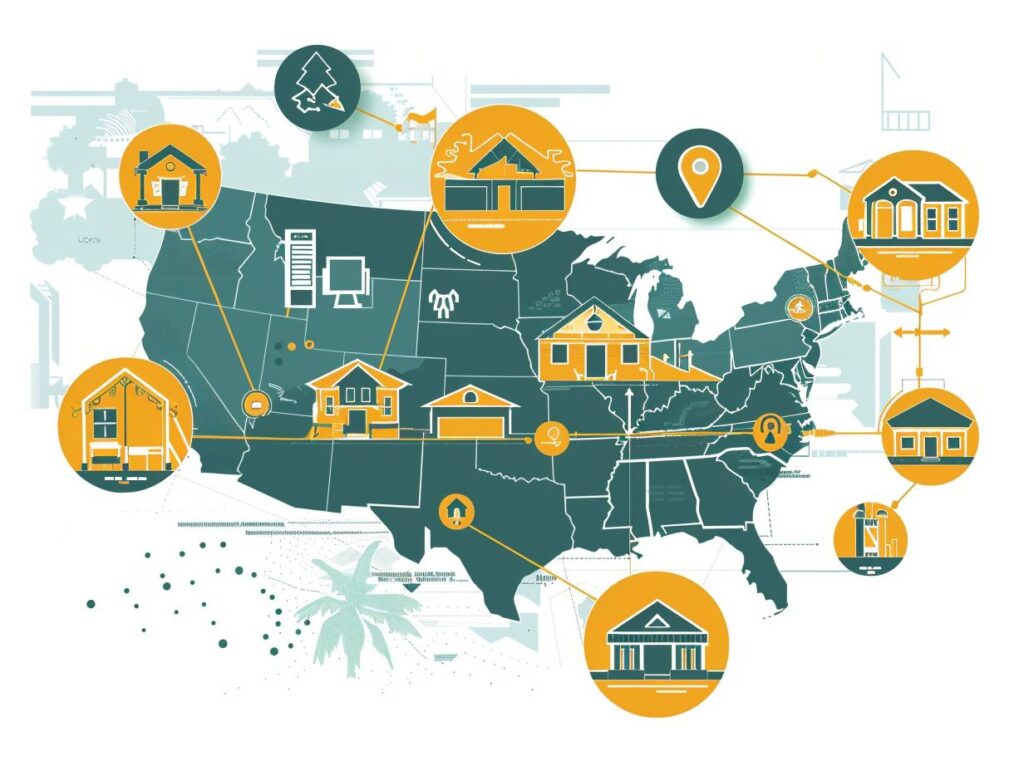
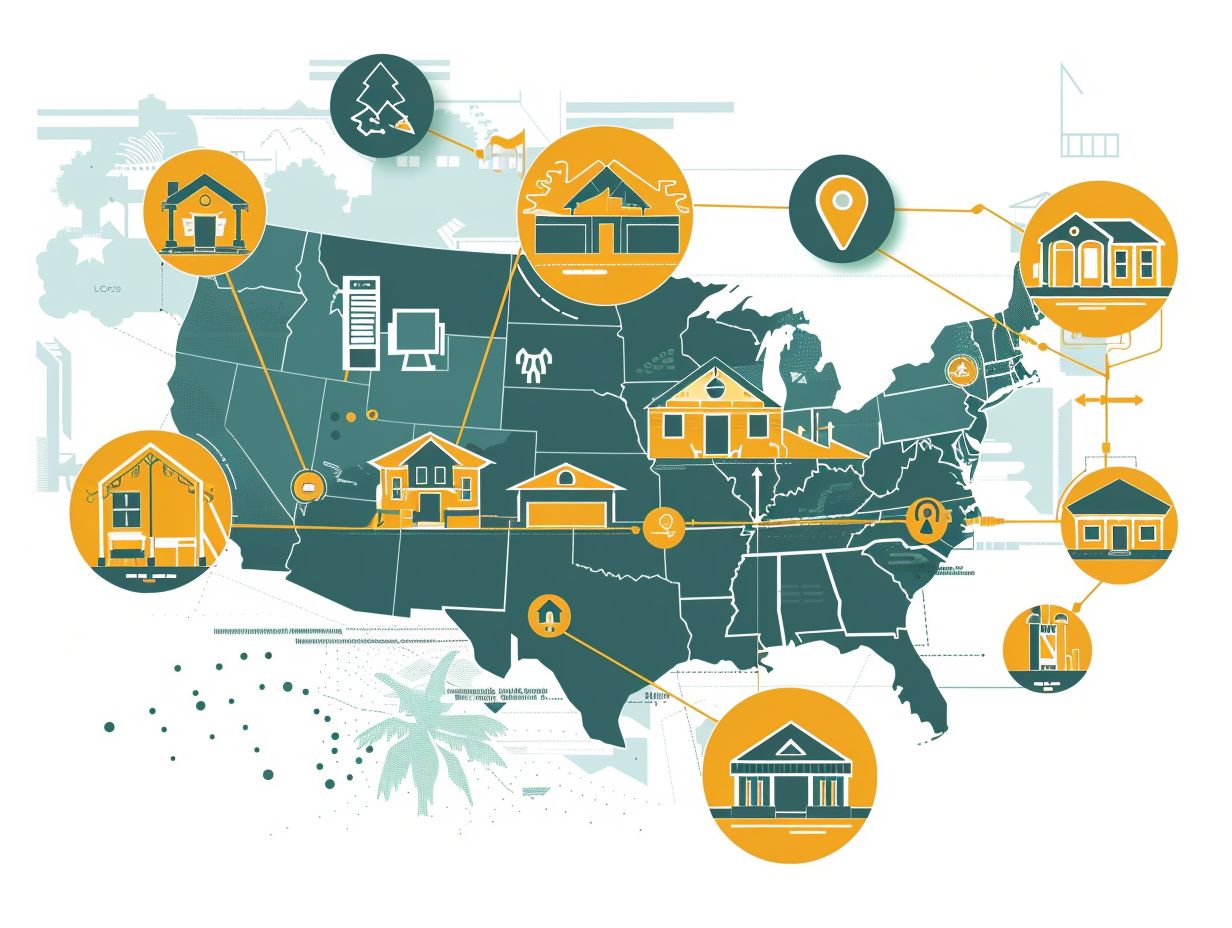
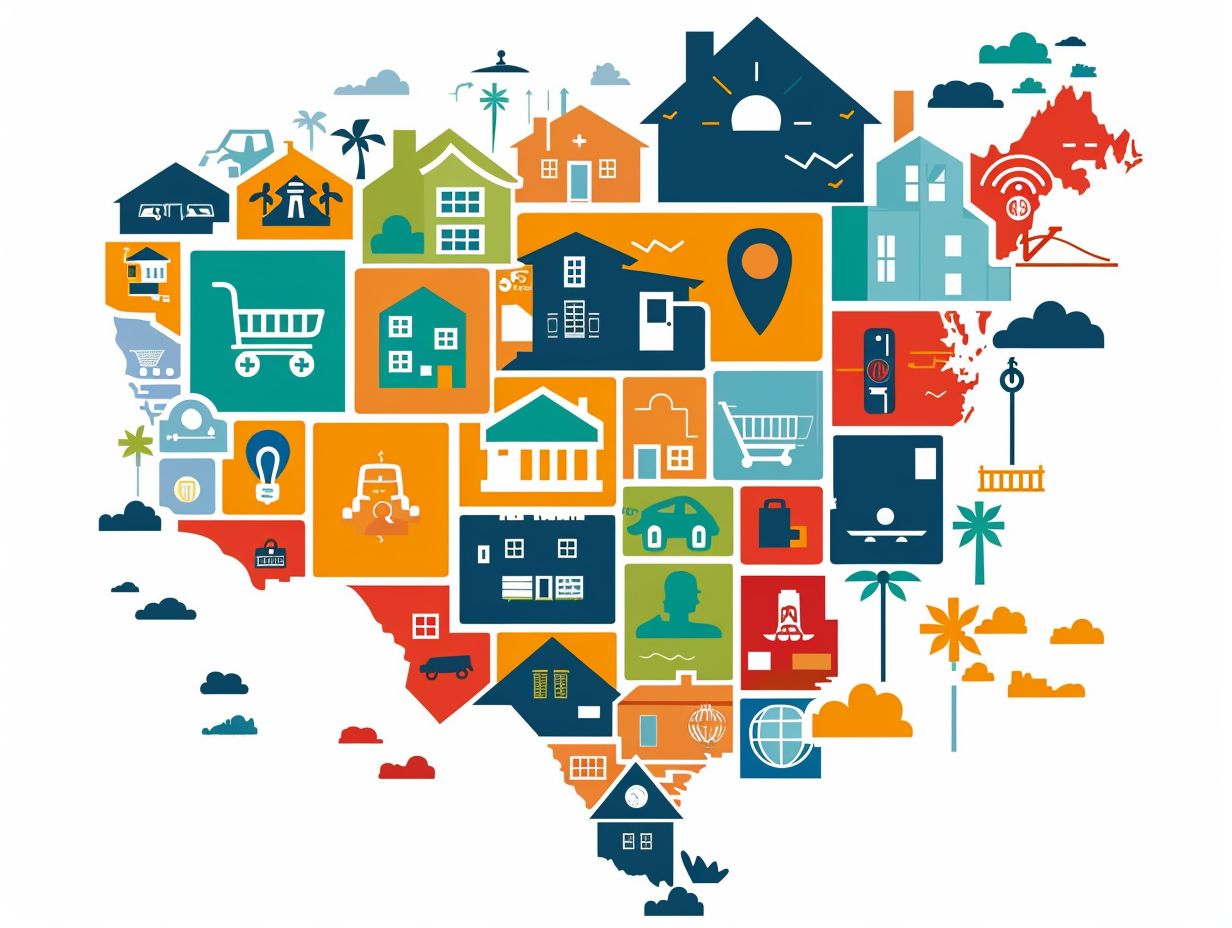
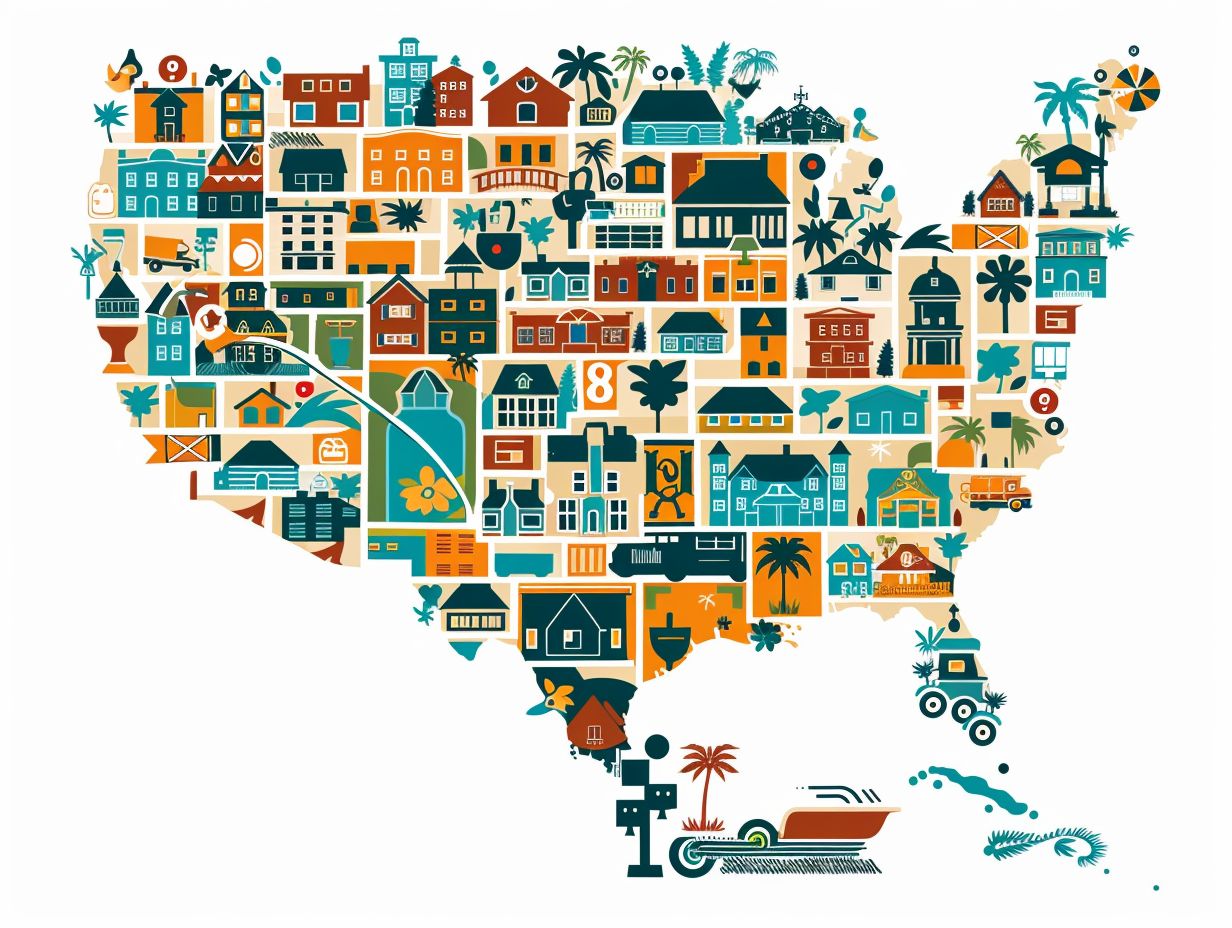














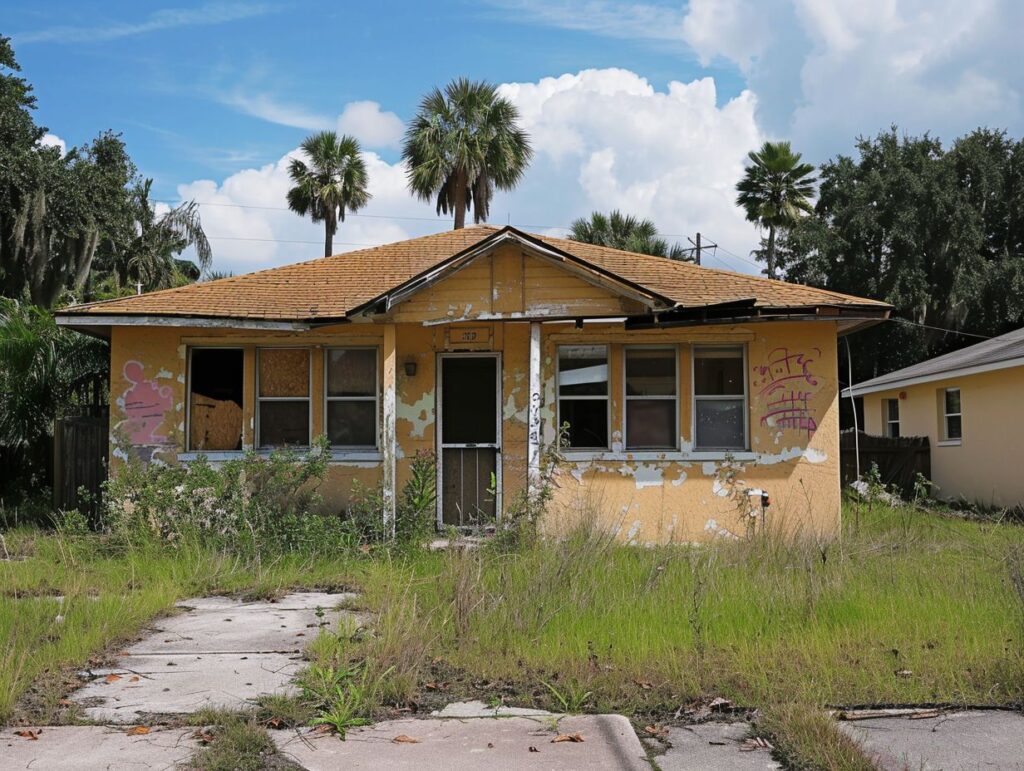







Rate this article:
Average rating 0 / 5. Vote count: 0
No votes so far! Be the first to rate this post.
No Comments yet!